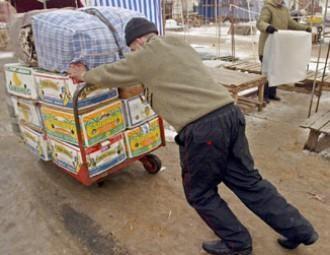Sole entrepreneurs may go on strike to protest against new certification rules

Small business owners with sole entrepreneur status may start a nationwide strike on July 1 if their new certification rules for light industry goods are introduced within the Customs Union.
Approved by the Commission of the Customs Union and scheduled to take effect on July 1, the rules prohibit the sale of clothes and footwear without a special label confirming their compliance with the Customs Union`s safety standards, BelaPAN says. The sellers will be required to submit samples of their goods to laboratories for testing and pay the certification costs.
During a meeting in Minsk on June 10, representatives of business associations in Minsk, Maladzyechna, Brest, Homyel, Vitsyebsk and Mahilyow stressed that manufacturers and not sellers should pay the costs and expressed readiness to shut up shop and stop paying taxes if their demands were ignored.
Anatol Shumchanka, chairman of Minsk-based Perspektyva, warned that the introduction of the certification rules would lead to the closure of 99 per cent of the small businesses in Belarus.
He called on the Belarusian government to hold a round-table conference of the rules by June 24, the scheduled date of a national forum of small entrepreneurs. If the certification issue is not settled by that time, a special committee will be formed to organize demonstrations, rallies and marches, he warned.
Mr. Shumchanka stressed that not the Belarusian government but the Moscow-based Commission of the Customs Union was to blame for the forthcoming crackdown on entrepreneurs. Starting with July 1, the Customs Union will pose a threat to Belarus’ business sector, he said.
-
03.01
-
07.10
-
22.09
-
17.08
-
12.08
-
30.09










































